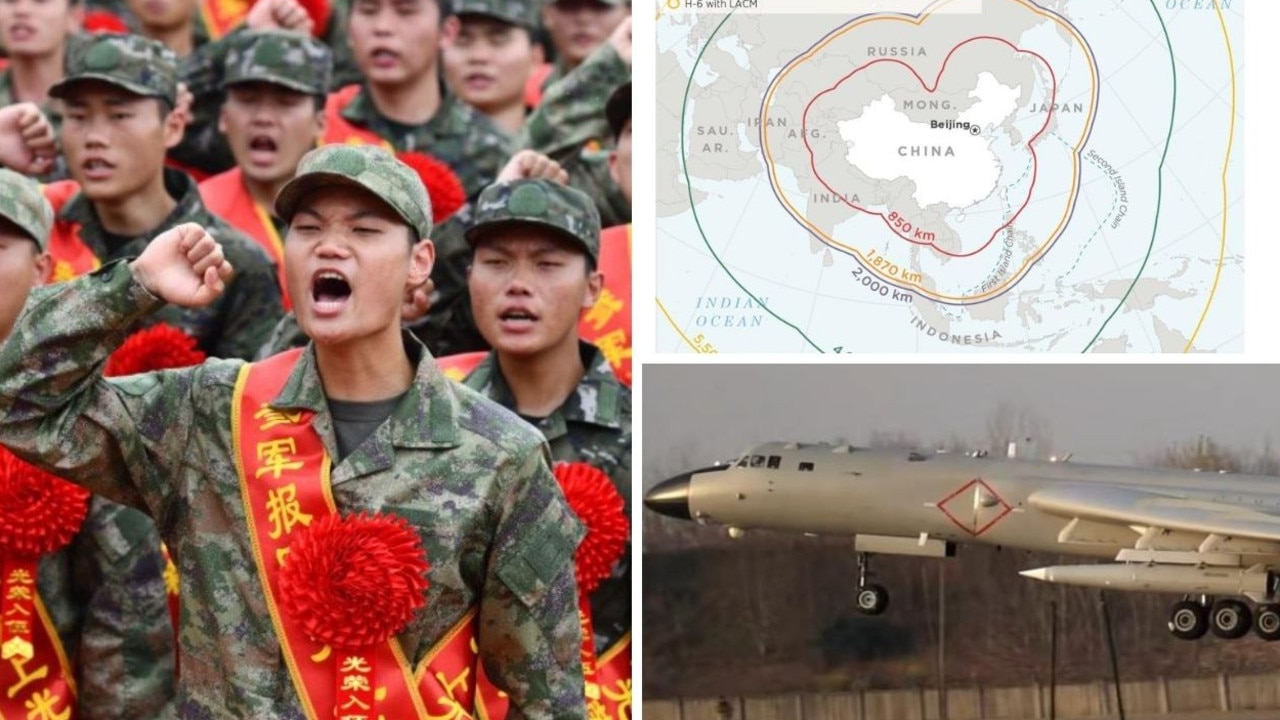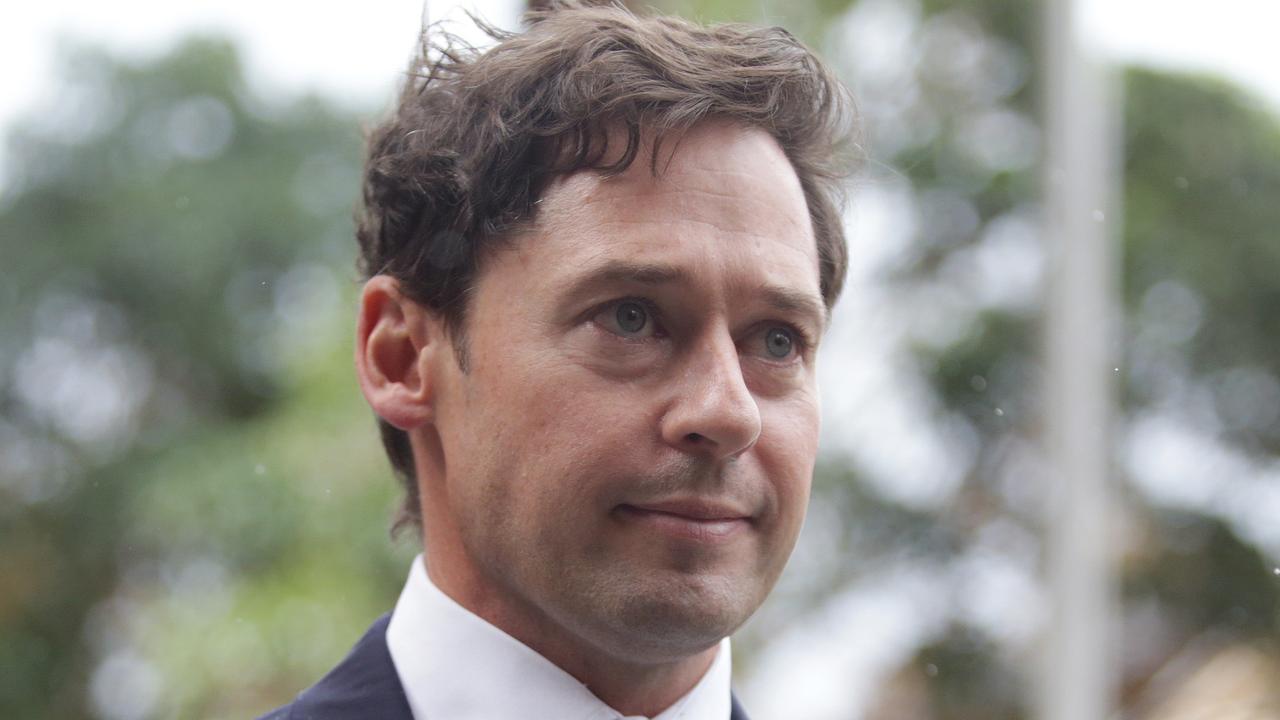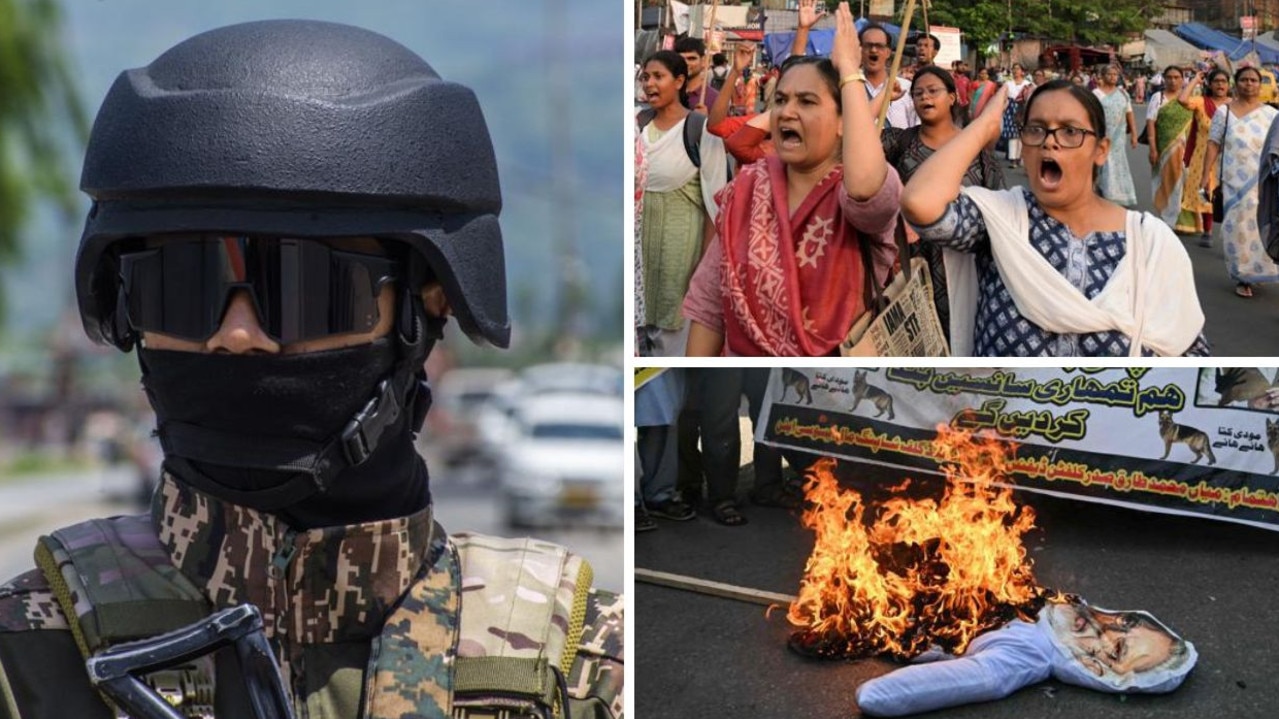China on the brink of military crisis with Taiwan, strategist warns
Beijing may “trigger a major crisis” this year to exploit COVID-19 and celebrate its centenary of Communism, a leading strategist warns.
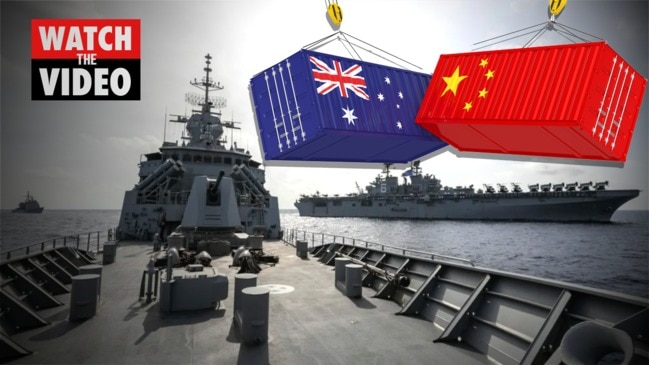
Beijing may “trigger a major military crisis” this year to exploit COVID-19 and celebrate its centenary of Communism, a leading Australian strategist warns.
Australian Strategic Policy Institute (ASPI) executive director Peter Jennings was part of a panel of experts invited to address the US Congress.
The US-China Commission was conducting hearings to anticipate what lies ahead for the South and East China Seas and Taiwan.
Mr Jennings said Chairman Xi Jinping stands to lose nothing if he keeps “testing the limits”.
“This gives rise, in my view, to a possible major crisis on Taiwan or the East China Sea in 2021,” he told the congressional hearing.
“This does not have to involve a PLA (People’s Liberation Army) amphibious assault of Taiwan’s northern beaches. But it could involve maritime blockades, closing airspace, cyber assaults, missile launchings around (and over) Taiwan, use of fifth column assets inside Taiwan, use of PLA force in a range of deniable grey-zone activities and potentially seizing offshore territory – Quemoy and Matsu, Pratas, and Kinmen Islands.
“Beijing will continue to probe with military actions, test international reactions and probe again.”
RELATED: ‘Open fire’: China flexes muscles to US
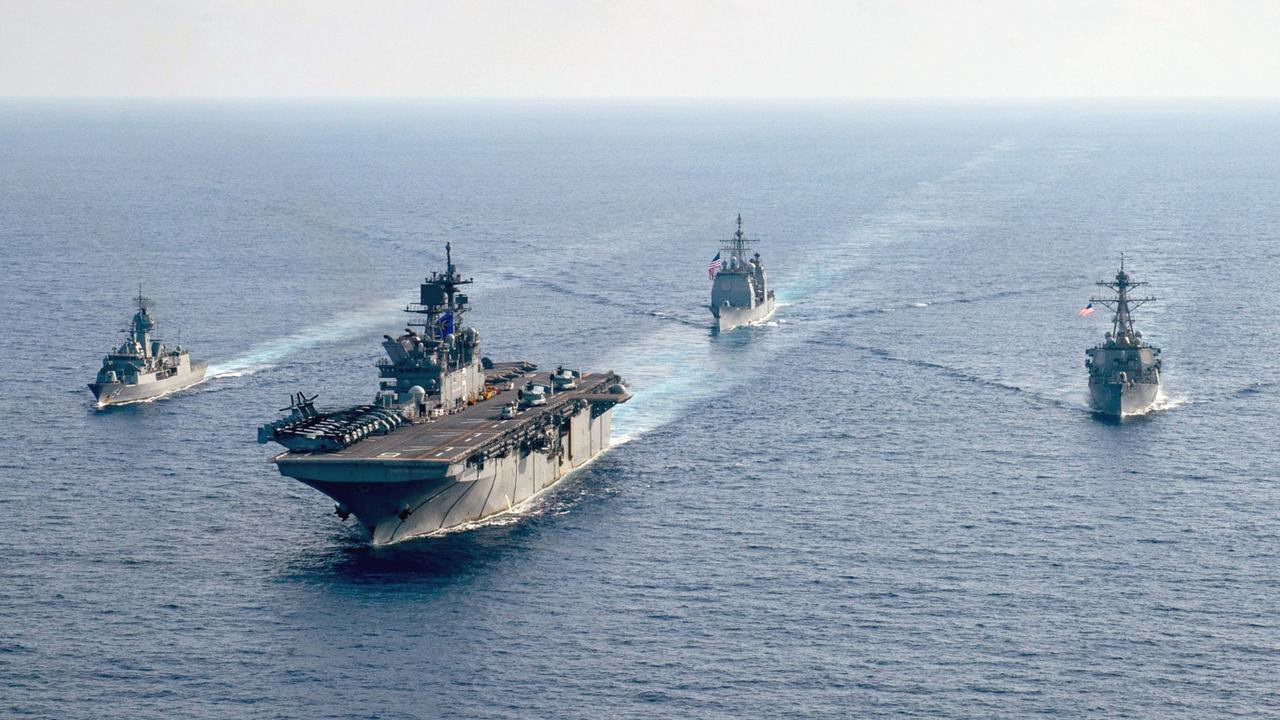
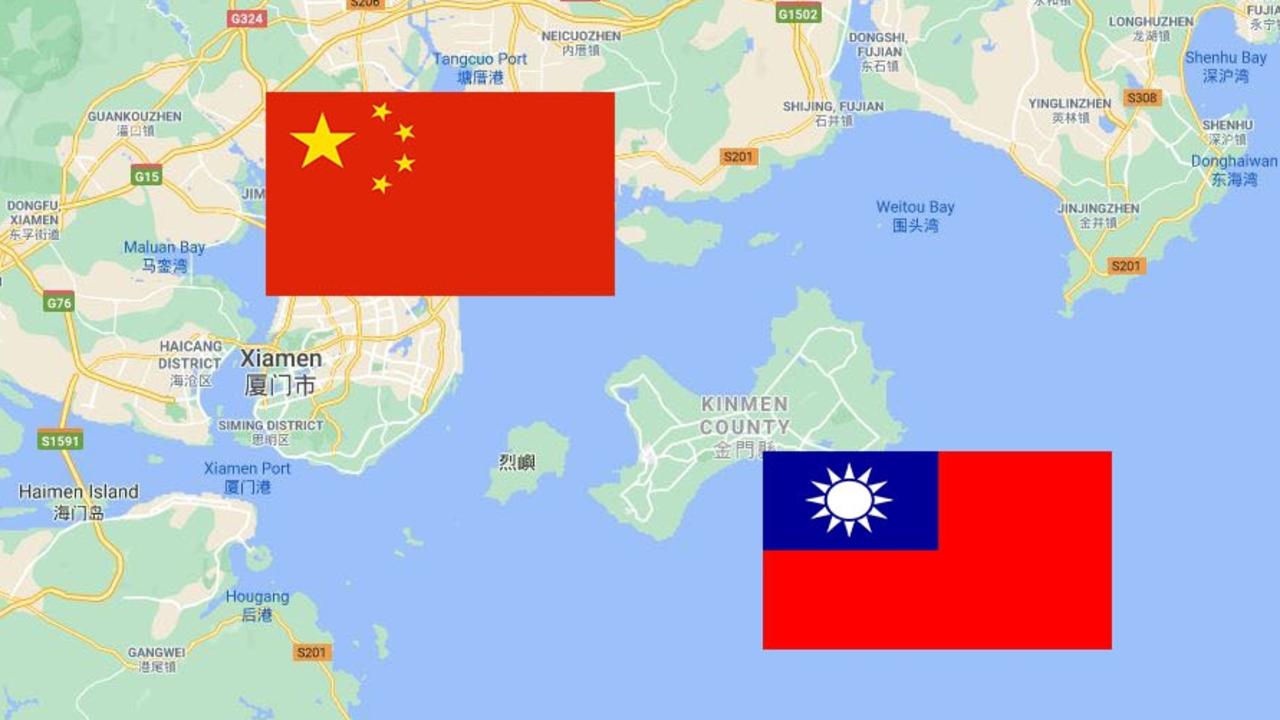
THE HEAT IS ON
Last week, senior member of the Politburo Standing Committee, Wang Yang, demanded Beijing’s “Taiwan Affairs” office produce “outstanding achievements” before celebrating 100 years of the Chinese Communist Party in July.
That means reunification with Taiwan. Whether it wants it or not.
Mr Wang is the fourth most senior member of the Communist Party’s leading Politburo Standing Committee – roughly analogous to Australia’s Federal Cabinet. The seven-strong ruling group includes “Helmsman” Xi Jinping and Premier Li Keqiang.
Mr Wang demanded progress to “advance the unification of the motherland,” safeguard Beijing’s “development interests” and strengthened opposition towards “external forces” encouraging “Taiwan independence”.
RELATED: Worrying China move ‘threatens war’
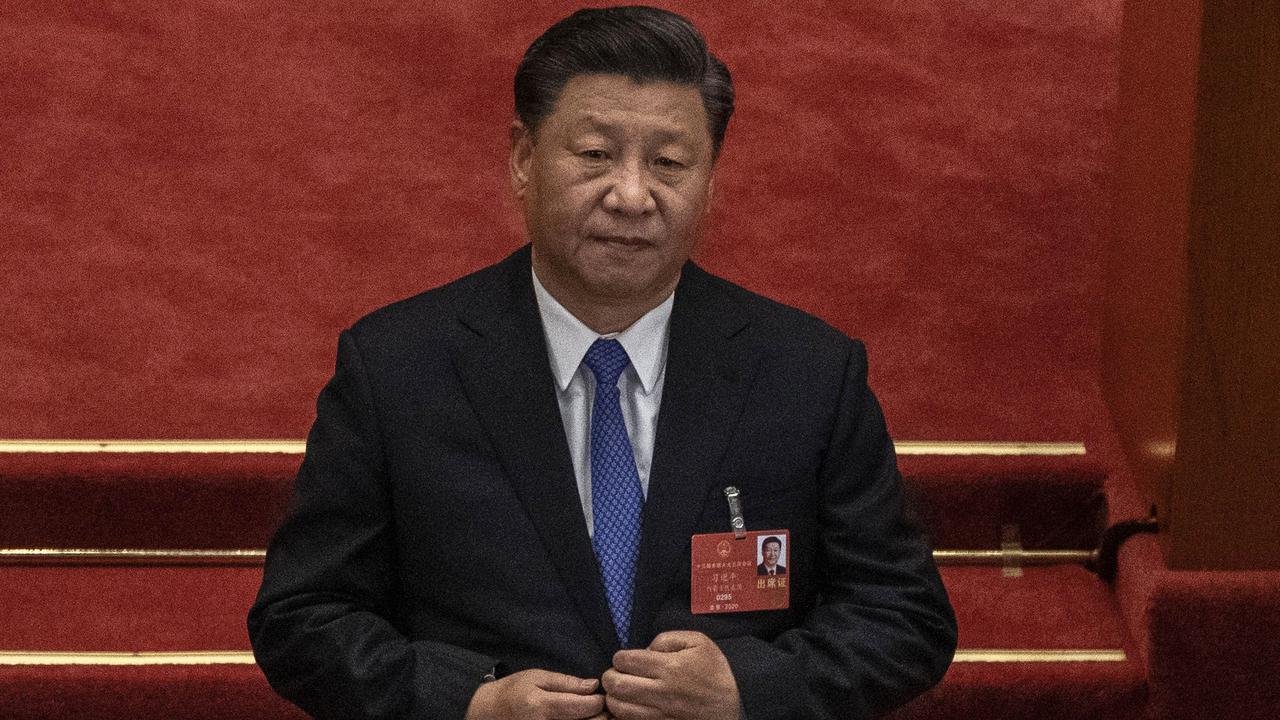
Days later, Chinese Defence Ministry spokesman Wu Qian insisted Taiwan was an “inseparable” part of China while reporting on a simulated “air strike” against the USS Theodore Roosevelt aircraft carrier battle group.
“The military activities carried out by the Chinese People’s Liberation Army in the Taiwan Strait are necessary actions to address the current security situation in the Taiwan Strait and to safeguard national sovereignty and security,” he said. “They are a solemn response to external interference and provocations by ‘Taiwan independence’ forces.
“We warn those ‘Taiwan independence’ elements: those who play with fire will burn themselves, and ‘Taiwan independence’ means war.”
Taiwan’s Mainland Affairs Council responded by saying Beijing should not underestimate the island’s determination to defend its sovereignty and uphold freedom and democracy.
CONFECTED CRISIS
“There can be no certainty that Xi will seek to stage a major military activity against Taiwan or in the South China Sea, but it is directly observable that Xi is positioning to be able to use that option if he deems it advantageous,” Mr Jennings’ formal submission to US Congress states.
It’s a high-stakes game.
“I would expect the United States to stand by its long-held policy disposition to support Taiwan. On that expectation hands the credibility of America’s alliance network in the Pacific,” he added.
Mr Jennings says there is an urgent need for like-minded democracies to align their efforts to counter China’s coercive influences and commit to a shared sense of purpose.
“As Australia saw over 2020, Beijing works hard to split democracies apart from each other and to weaken their resolve through bilateral pressure,” he says.
RELATED: ‘Racist’ hypocrites: China’s attack on Aus
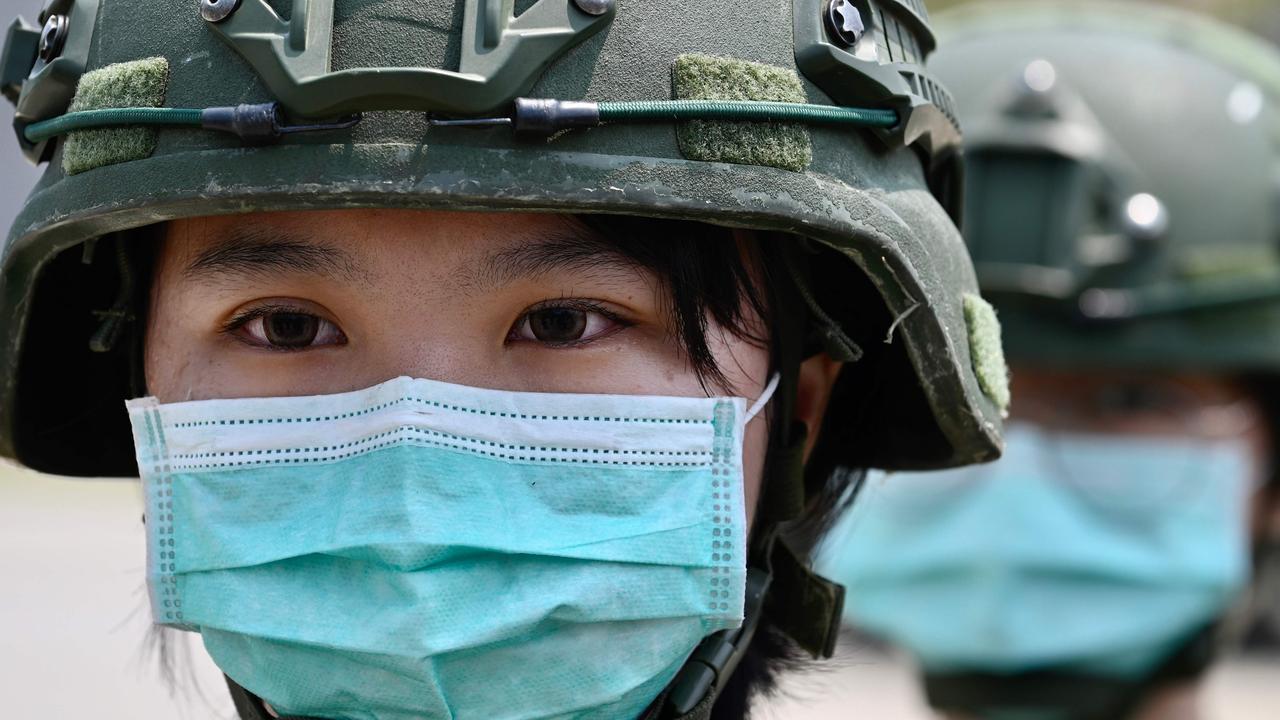
Expect another year of intensifying tensions over Taiwan.
“We should not be surprised if Beijing confects a cross-strait crisis,” he says. “It may be that President Xi calculates that a short-term window of opportunity is closing for the PRC to pressure Taiwan to make concessions on its future political status.”
But MIT China analyst Taylor Fravel told Congress the People’s Liberation Army’s tone at the most recent Communist Party’ assembly was one of building towards its 2035 objectives.
“China’s emphasis on operating in the grey zone recognises the clear dangers of crossing the threshold for the use of force and have been employed precisely for this reason – to achieve national objectives without using force,” he says.
And such ‘grey zone’ tactics include ignoring international boundaries, economic enticement – and coercion.
“A leading Indonesian political figure once said to me that the PRC had no real soft power in Southeast Asia, but plenty of ‘money power’,” he says.
“There may be a hint of frustration (in Beijing) that … China’s soft power is not winning hearts and minds. We should not take much comfort from that. The PRC’s money power … is helping China to promote and advance its interests in many parts of the world.”
CONVERGENT CONCERNS
Not all of the expert panel agreed with the immediacy of the potential threat.
“Beijing has not reached a major inflection point in its foreign practices. The reasons to avoid confrontation with America remain,” says Elliott School of International Affairs analyst Robert Sutter. “China’s leaders were surprised and placed on the defensive by the across-the-board countermeasures of the administration, and Congress carried out over the past three years.”
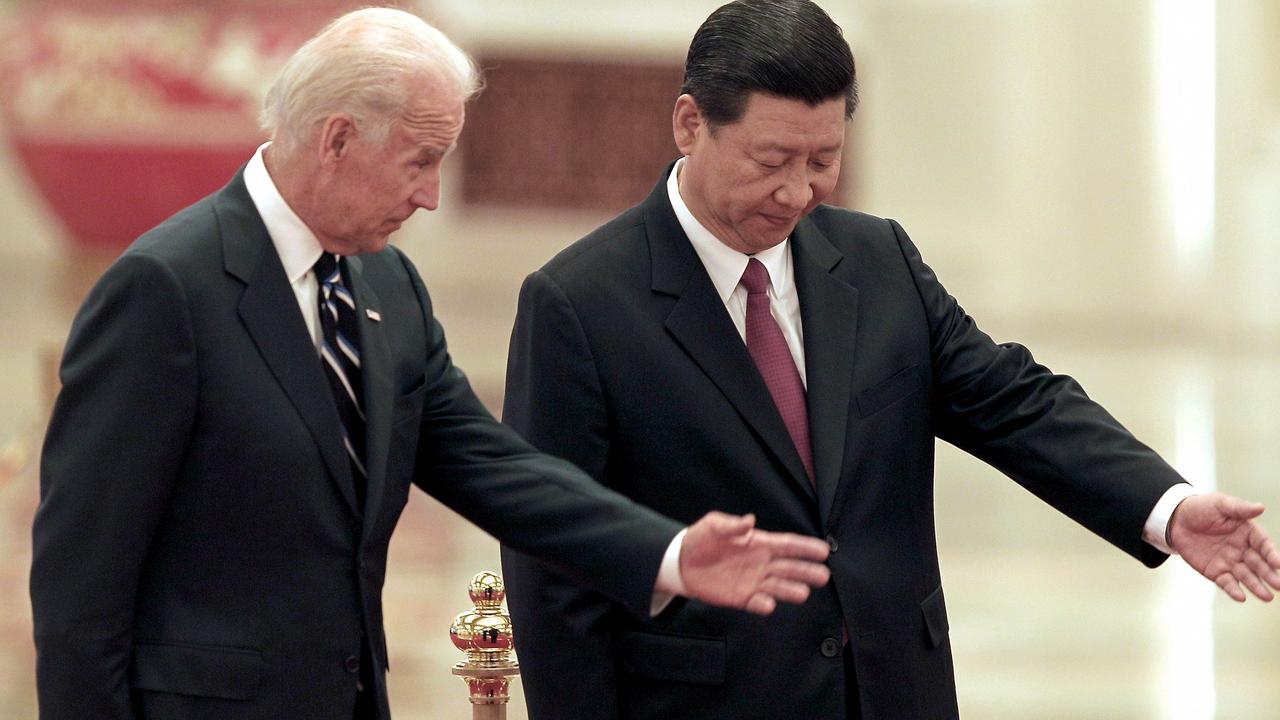
Professor of international economics Mary Lovely told the committee that a healthy world economy was beneficial to Beijing. But Beijing also had severe problems.
“Despite these domestic and international successes, China faces profound challenges at home and abroad,” she says.
“While tone-deaf in its pronouncements to the world and wilfully blind in its refusal to recognise its own aggressions, China nonetheless continues to seek the benefits of international trade and investment, and the country’s leaders have invested diplomatic effort (towards this).”
As things get more difficult at home, Beijing’s hostility is likely to increase.
“Internal security is one of the chief ends of China’s strategy, not just a means or a constraint on foreign policy, and unless we understand that, our analysis of China’s security behaviour – both domestically and externally – is going to have significant errors,” says Brookings institution analyst Sheena Greitens.
PROPAGANDA TRAP
Censorship, dogma dissemination and information control are core components of the Chinese Communist Party’s methodology, noted Dr Jacqueline Deal of Long Term Strategy Group.
This puts it at risk of believing its own propaganda.
“The CCP’s increasing obsession with information control and the disincentives it has created for the transmission of bad news raise the chance that the inputs to its policies will reflect faulty or incomplete data,” she told Congress.
It also primes key personnel to believe the source of troubles is external, not internal.
“If the CCP encounters an unexpected setback, history suggests CCP elites will fear foreign adversaries are poised to exploit their misfortune,” Dr Deal says. “They’ll look to initiate aggression wherever they perceive an opportunity to teach rivals a lesson and bolster deterrence.”
Watch for subtle changes of language and tone in the words of Beijing’s ‘wolf warrior’ diplomats and propaganda outlets, Professor Yuen Yuen Ang told Congress.
“In China’s single-party state, official addresses … are usually stultifying, filled with platitudes and party slogans. But in fact, ‘in Chinese politics, subtle changes in rhetoric reflect a big change in ideology’. The challenge lies in extracting these ‘subtle changes’ from a sea of bureaucratic jargon, and interpreting their significance.”
Meanwhile, Beijing continues to step up its diplomatic, economic and military efforts to reshape the international order in its own image.
“Beijing understands the value of being able to shape agendas of powerful international organisations to ensure they do not cut across key Chinese lines of effort,” Jennings says. “It’s critically important that the US and other democracies do not cede these fields to the PRC.”
Jamie Seidel is a freelance writer | @JamieSeidel


